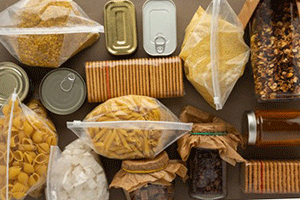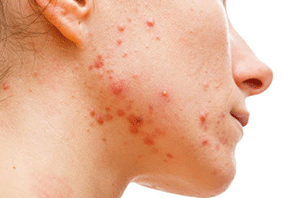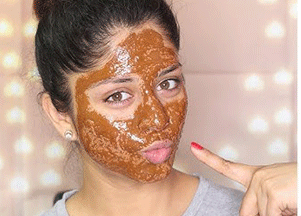Acne is a common skin condition that affects people of all ages. While it can be frustrating and sometimes painful, many effective home treatments can help manage and reduce acne. By understanding the causes and employing the right strategies, you can achieve clearer skin without leaving your home.
Other Topics You Might Like
Helpful Products You Might Like

Product Name

Product Name

Product Name
"(Paid Links)" 
Understanding Acne
Causes of Acne
Acne occurs when hair follicles become clogged with oil and dead skin cells. Factors such as hormonal changes, stress, and diet can contribute to its development.

Types of Acne
There are several types of acne, including whiteheads, blackheads, papules, pustules, nodules, and cysts. Each type requires different treatment approaches.
Cleansing and Exfoliating
Importance of Cleansing
Keeping your skin clean is essential in managing acne. Use a gentle cleanser twice daily to remove dirt, oil, and makeup.
Exfoliation Methods
Exfoliating helps to remove dead skin cells that can clog pores. Use a mild exfoliant 2-3 times a week to prevent irritation.
Home Remedies for Acne
Honey and Cinnamon Mask

Honey and cinnamon have antibacterial properties that can help reduce acne. Mix one tablespoon of honey with a teaspoon of cinnamon and apply it to your face. Leave it on for 10-15 minutes before rinsing off.
Tea Tree Oil
Tea tree oil is known for its anti-inflammatory and antimicrobial properties. Dilute it with a carrier oil and apply it to affected areas.
Aloe Vera
Aloe vera soothes the skin and reduces inflammation. Apply pure aloe vera gel to your skin daily to help heal acne.
Diet and Lifestyle Changes
Foods to Avoid
Certain foods can trigger acne. Avoid sugary snacks, dairy products, and processed foods.
Healthy Eating Habits
Incorporate more fruits, vegetables, and whole grains into your diet. Foods rich in omega-3 fatty acids, like salmon and walnuts, can also help.
Importance of Hydration
Drinking plenty of water helps to flush out toxins and keep your skin hydrated. Aim for at least 8 glasses a day.

Over-the-Counter Treatments
Benzoyl Peroxide
Benzoyl peroxide kills acne-causing bacteria and helps to reduce inflammation. Start with a lower concentration to avoid irritation.
Salicylic Acid
Salicylic acid helps to exfoliate the skin and unclog pores. Use it in cleansers, toners, or spot treatments.
Retinoids
Retinoids promote cell turnover and prevent clogged pores. They are available over-the-counter in lower concentrations or by prescription.
Avoiding Common Mistakes
Over-Washing the Face
Washing your face too often can strip the skin of its natural oils, leading to more oil production and acne. Stick to washing twice daily.
Popping Pimples
Popping pimples can cause scarring and spread bacteria. Avoid touching your face and let blemishes heal naturally.
Using Harsh Products
Harsh products can irritate the skin and worsen acne. Choose gentle, non-comedogenic products designed for sensitive skin.
Natural Treatments for Acne Scars
Lemon Juice

Lemon juice has natural bleaching properties that can lighten acne scars. Apply it with a cotton ball and leave it on for 10 minutes before rinsing.
Rosehip Oil
Rosehip oil is rich in vitamins A and C, which help to heal and regenerate skin. Apply it daily to improve the appearance of scars.
Vitamin E
Vitamin E oil can help to fade scars and promote healing. Apply it directly to the scars and massage gently.
When to See a Dermatologist
Signs That You Need Professional Help
If your acne is severe, persistent, or causing significant scarring, it's time to see a dermatologist. They can provide stronger treatments and personalized advice.
Treatment Options from Dermatologists
Dermatologists can offer prescription medications, chemical peels, and laser treatments to manage and reduce acne.
Conclusion
Treating acne at home requires consistency and patience. By following these tips and making necessary lifestyle changes, you can achieve clearer skin. Remember, everyone's skin is different, so it may take some time to find the right routine that works for you.
